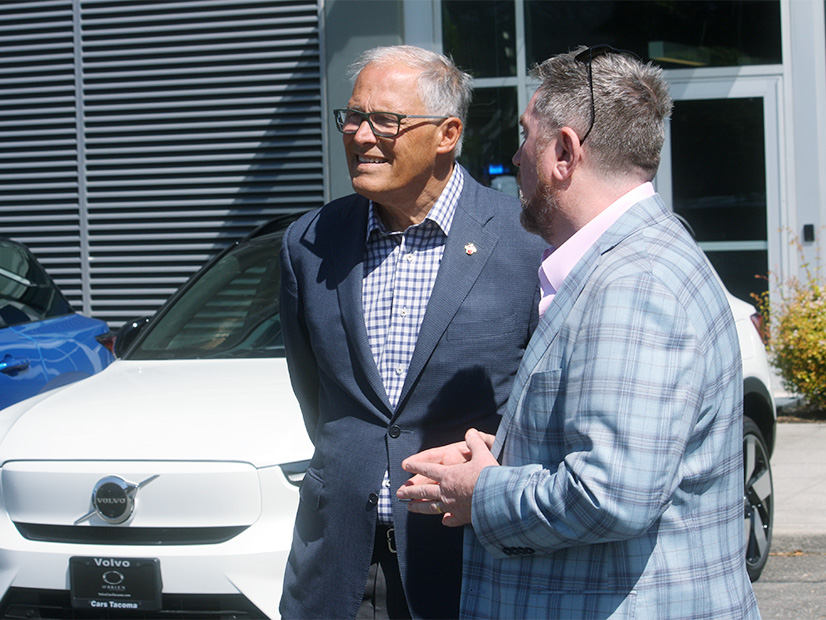
SEATTLE — A new Washington program aims to help low- and moderate-income families lease or buy electric vehicles with some of the most generous incentives offered in the U.S.
Gov. Jay Inslee announced the Washington EV Instant Rebates Program at an Aug. 1 press conference in Seattle.
“We know the cost of EVs will come down quite rapidly, but we don’t want to wait,” Inslee said. “Everyone essentially will be able to get one for less than $200 a month” under the program, which will reimburse automakers and dealers who provide point-of-sale rebates to eligible residents leasing or purchasing an EV.
To be eligible, an individual or household must earn no more than 300% of the federal poverty level, said Mike Fong, director of the Washington Department of Commerce.
Fong said it was difficult to pin down precise annual income levels for eligibility but that the threshold would likely range from $45,000 for a single person to $93,000 for a family of four. Roughly 37% of Washington’s households sit below those thresholds.
The program will offer rebates of up to $9,000 for an individual or household obtaining a three-year lease on an EV, $5,000 for a two-year lease and $2,500 for a used EV lease. A $5,000 rebate will be available for the purchase of a new EV and $2,500 for a used EV.
The Washington program is expected to provide rebates to 6,500 to 8,000 residents by June 2025, which is when the $45 million appropriation from the state general fund expires.
A survey of common EVs sold nationwide shows most sell for between $40,000 and $75,000, though a new Nissan Leaf sells for roughly $30,000. A chart at the Aug. 1 press conference showed the monthly lease prices for seven models ranging from $104 to $199. The average monthly payment for gasoline-powered cars is about $700, according to the Washington Department of Commerce.
State officials said 26 EV models are sold in Washington and 122 auto dealers will participate in the program.
Washington’s program appears to offer the biggest EV rebates in the nation. A Kelley Blue Book listing shows 49 states having either statewide rebates or a hodgepodge of in-state entities offering rebates. Washington’s maximum rebate, $9,000, would be more than double the size of the second-largest rebate.
Washington’s rebates can be used alongside a federal rebate of up to $7,500 for an eligible new EV and up to $4,000 for the purchase of a used vehicle.
More information on the Washington EV rebate program can be found here.
Washington had 194,232 passenger EVs (including both fully electric and plug-in hybrid vehicles) as of June 2024, according to the state’s Department of Licensing. To reach its targets on trimming statewide pollution, the state estimates it needs to have 265,735 passenger EVs on the road by the end of this year to be on pace to hit targets of 1,449,962 by 2030 and 3,135,799 by 2035.
Washington currently has 5,841 public EV charging ports for light-duty vehicles, with 4,546 regular chargers and 1,295 fast chargers. To hit state targets, Washington needs 3,912 regular chargers and 3,030 fast chargers by the end of 2025, according to the state’s Transportation Electrification Strategy.
These targets grow to 8,671 regular chargers and 6,926 fast-charging ports in 2030 and 13,068 regular and 10,522 fast-charging ports in 2035. This is for light-duty vehicles. Additional chargers will be needed for trucks and buses.
Commerce Department spokeswoman Amelia Lamb noted these figures do not include private charging ports for homes, for which current figures are incomplete. The targets for home-charging ports are 1,264,731 by 2030 and 2,944,207 by 2035.


